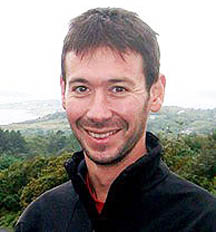-as UN council adopts human rights report
United Kingdom Ambassador Bob Last yesterday maintained that an independent investigation of the ‘phantom squad’ is an issue that requires attention as the report on Guyana’s human rights record was adopted by the United Nations Human Rights Council (UNHRC) in Geneva, Switzerland.

The Bharrat Jagdeo administration has rejected calls by the UK and Canada for independent probes into allegations of human rights abuses here, including murders and extra-judicial killings committed by members of the armed forces and a ‘phantom squad.’ Amnesty International (AI) yesterday expressed regret that Guyana did not commit to an independent inquiry. The parliamentary opposition parties here have been campaigning for an international inquiry into the allegations, however, with little success.
Presidential Advisor on Governance Gail Teixeira, who represented Georgetown for the consideration of the Report of the Working Group on the Universal Periodic Review (UPR) of Guyana, yesterday merely said that the recommendations were not accepted and noted. She added that the results were elaborated in the addendum provided.
Under the framework of the UPR, Guyana’s human rights record was scrutinized in Geneva on May 11. Following the review, an outcome report, which included the questions, comments and recommendations as well as the state’s response, was prepared. The report was adopted at a plenary session of the UNHRC yesterday after Teixeira responded to questions, issues and recommendations that were not sufficiently addressed prior.

At the May 11 session, there were 112 recommendations and Guyana had accepted 57 and committed to providing responses to the remaining 55. Teixeira reported yesterday that of the 57 recommendations that enjoyed the support of the government, 14 have been implemented, 40 are at various stages of implementation and two are pending implementation. Of the 55 recommendations, Guyana undertook to consider, 15 have been accepted, 46 are noted of which 28 will be considered and subjected to consultations wherein Guyana voluntary commits to report to the HRC, she said. Therefore Guyana has accepted 75 of the 112 recommendations, she said.
Teixeira commented on several issues, including corporal punishment, the removal of which public opinion in Guyana is not in favour of, she said. On the specific recommendation by Canada to “ensure thorough and independent investigations of all allegations of extrajudicial killings, taking into account findings in the report of the United Nations Independent Expert on Minority Issues on the ‘phantom death squad,’” Teixeira said that Georgetown supported the first part and noted the second part. She reiterated Guyana’s commitment made to the UPR that Georgetown will continue to investigate based on available information and witnesses of all those responsible for the wave of criminal violence in 2002 to 2008; whether they were part of the violent criminal gangs or the ‘phantom squad.’ “The government …has made commitments in relation to 28 recommendations which relate to the controversial issues which elicit strong public opinion,” said Teixeira. Guyana will continue to consider and consult on the abolishing of the death penalty, corporal punishment and addressing the decriminalization of consensual same sex relations, she said.
On domestic violence Teixeira noted that a number of domestic violence units have been established in the seven police divisions. “A new intervention with Guyanese faith-based organizations in the Diaspora and those in Guyana in partnership with the Ministries of Human Services, Health, Education (and) Home Affairs, to prevent and reduce domestic violence will commence in October this year,” she said. Teixeira also reaffirmed Guyana’s commitment to holding consultations with civil society, the four human rights commissions, various levels of government and state agencies and the National Assembly on the follow-up to the first round UPR process which concluded yesterday for Guyana.
“Guyana assures the Human Rights Council that as a developing country and a newly emerging democracy with many challenges to reduce poverty and to develop and modernize the country, Guyana is nevertheless proud of its constitutional and parliamentary reforms and its model of shared governance. However, it must be recognized that these were introduced only seven years ago,” she said. Teixeira stated Guyana is proud of its socio-economic achievements and its budgetary commitment to poverty reduction although it recognizes that there are still much more to be overcome. She assured that Guyana remains irrevocably committed to democracy and the protection of human rights, rule of law and good governance for its people.
‘Important issues’
Cuba, Algeria, Morocco, China and the UK commented on Guyana’s report. The countries said that they were impressed by measures taken since last session and wished success. Senior Human Rights adviser Last, in noting that Guyana has accepted some of the UK’s recommendations, recalled that there were others such as a recommendation that Georgetown commits to a holistic and wide-ranging reform of the security agencies and the criminal justice sector underpinned by wide consultations and transparency, another to adopt a formal moratorium on executions and remove all legal provisions for mandatory death sentences with the view of abolishing the death penalty and the establishment of an independent inquiry into abuses allegedly committed by a ‘phantom squad between 2002 and 2008 and ensure those responsible are brought to justice. “We continue to ‘believe that these represent important issues which require attention,” he said. “With regard to those recommendations made by the UK which were noted today but not yet accepted we hope that Guyana will be able to accept those recommendations in the near future,” he added.
Meanwhile, Amnesty International said that it welcomed Guyana’s commitment to expedite implementation of the law against sexual offences and to ensure coordinated implementation of the national domestic violence policy. The NGO also supported the commitment to improve the training of the security forces and to investigate allegations of human rights violations committed by the security forces including torture, extra judicial killings and the use of excessive force. “We regret that Guyana did not commit to establish an independent inquiry into torture and forced disappearances and killings allegedly committed by death squads between 2002 and 2006 and to ensure that those responsible are brought to justice,” the NGO representative added.
She said that AI is also disappointed that Guyana rejected the recommendation to establish a moratorium on executions with a view to abolishing the death penalty but said it is encouraging that there were no executions for 10 years. The NGO welcomed the administration’s commitment to consider the issue over the next two years and report back. It urged the removal of legislation that discriminate based on sexual orientation but welcomed the commitment to consider this issue.
NGO, Action Canada for Population and Development, reading a statement on behalf of local NGO, the Society Against Sexual Orientation Discrimination (SASOD), said that it welcomes the commitment to Lesbian, Gay, Bi-sexual and Transgendered people in Guyana. However, the NGO said that the administration’s effort in 2003 was not a genuine one as the government presented sexual orientation as a separate bill from all other bills presented for consideration to the National Assembly and had signaled its intention not to support the sexual orientation bill. “This was an unprecedented parliamentary maneuver which saw the sexual orientation bill floundering without even a vote being taken on it,” the NGO representative said. He said that moreover, gender identity as a basis for discrimination has not been considered by the National Assembly to date. “It would be erroneous and misleading to say that there is no state sanctioned discrimination on the basis of sexual orientation in Guyana. Our laws criminalize any form of sexual intimacy between consenting adult men in private,” he said while repeating the call for the repealing of the relevant sections of the law.
In response, Teixeira thanked those countries which indicated their support, particularly Cuba and China. She assured the UK that all efforts are being made in relation to improving and modernizing the Guyana Police Force and the security sector. Further, she said, the administration will continue to consult and based on the democratic process will be able to make changes as determined by popular views.
Responding to Action Canada, Teixeira said that the NGO seems to be “badly misinformed” in relation to the constitutional process that took place in 2003 in relation to the inclusion of sexual orientation. She recalled that she was on the Human Rights Task Force and said that they recommended that the phrase ‘sexual orientation’ be included. The Bill went to the National Assembly and was voted on and supported during a vote in 2001, she said. However, according to Teixeira, the religious community then exerted “extreme pressure” on the government and opposition parties and demanded that the bill be returned to parliament for review. She explained that there was a delay of two years in which matter was in abeyance. In 2003, the anti-discrimination clause included ‘sexual orientation’, she said but at the vote, there was a vote of conscience on both sides and the phrase ‘sexual orientation’ did not win the support of Parliament. “That day we were surrounded by picketers and protesters as well as every religious leader of the country, Christian, Hindu and Muslim,” Teixeira said.
She denied that the State discriminates. “But the profound cultural and religious beliefs, particularly of the Christian evangelical movement in our country, has strengthened the position against the issue of gays, homosexuals, lesbians, bi-sexuals and trans-gendered,” she explained. “The fact that we are willing as a government to discuss this openly is with the intention of being able to bring the matter to the public to move it from the closet and to be able to hopefully find a comfort zone for our people on this issue,” she added, saying that this is a movement and process that is now commencing and government is willing to work with civil society to find the best answers.




